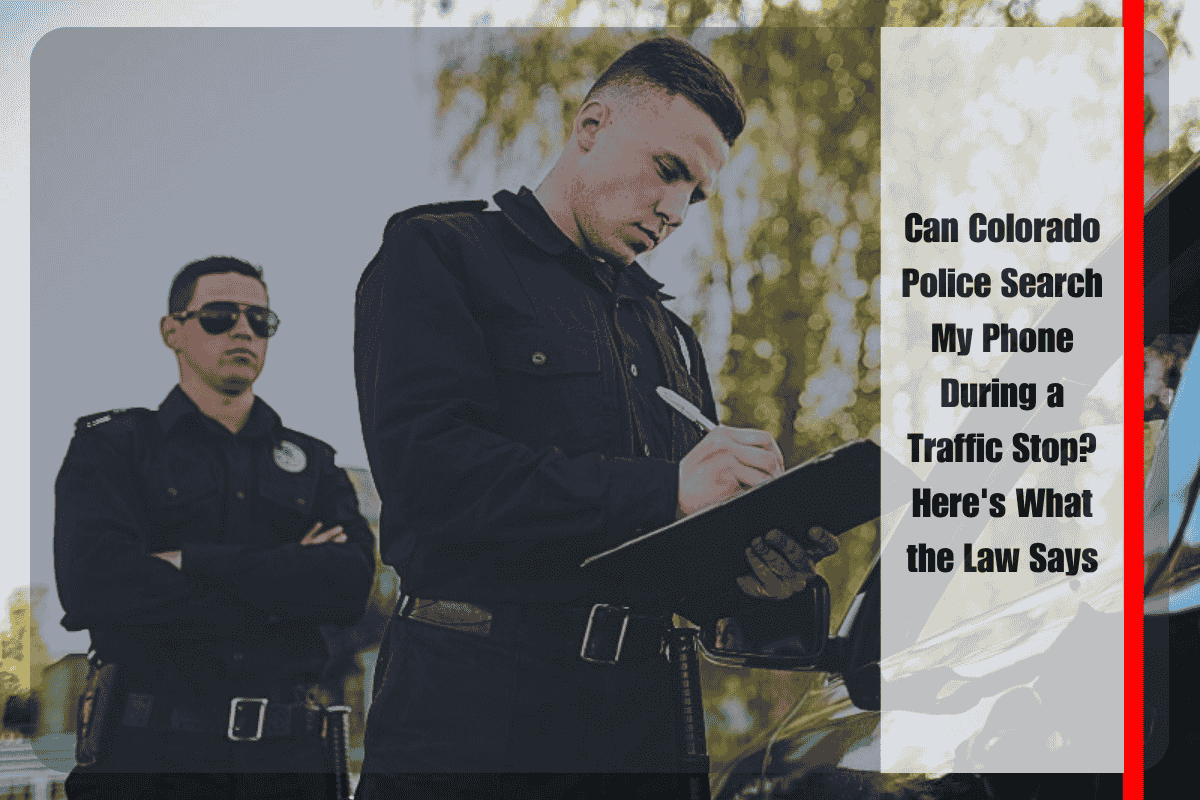In Colorado, police do not have the automatic right to search your phone during a traffic stop. Under both federal and Colorado law, the digital contents of your phone receive strong privacy protections due to the vast amount of personal data such devices hold. The Fourth Amendment of the U.S. Constitution and related state laws require law enforcement to obtain a search warrant before accessing the information stored on your phone. This legal approach was reinforced by the Supreme Court’s decision in Riley v. California, which mandated that police must generally secure a warrant to search digital devices—even after a lawful arrest—except in rare, narrowly defined exceptions.
There are two principal circumstances where police might legally search your phone during a traffic stop without a warrant. The first is with your clear, voluntary, and unequivocal consent. If you allow officers to search your device, you waive the right to later challenge the legality of the search. However, you are under no obligation to grant this permission, and you can withdraw your consent at any time, even after a search has begun. The law also requires that consent be truly voluntary; if consent was given under duress or is ambiguous, it may be challenged in court.
The second circumstance permitting a warrantless search occurs in the presence of “exigent circumstances.” These are limited to urgent situations such as when there is an imminent threat to safety or a substantial risk that evidence on the phone will be destroyed before the police can secure a warrant. Even in these cases, courts closely scrutinize whether law enforcement had a legitimate and immediate need sufficient to bypass the usual warrant requirement.
Probable cause is another essential legal threshold. Officers must have specific, articulable facts suggesting that the phone contains evidence of a crime—mere suspicion or the existence of a traffic violation alone is not enough. If police believe probable cause exists but cannot secure consent or satisfy exigent circumstances, they may seize the phone and hold it for the limited time necessary to obtain a search warrant. They cannot, however, search the phone’s contents until the warrant is issued.
It is advisable not to provide consent for a cell phone search unless you have spoken to an attorney. Agreeing to a search gives police broad access to call logs, text messages, app data, location history, photos, and any other digital records—which may be misinterpreted and used against you in court. Evidence obtained during an unlawful search, meaning one without a warrant, valid consent, or a true exigent circumstance, can be excluded from court proceedings through legal challenge.
To protect your rights in any traffic stop, calmly refuse consent if asked and state that you do not agree to a search of your phone. Do not unlock or hand over your device unless compelled by a valid warrant. If officers pressure you or search your phone regardless, document the encounter if possible and consult an attorney at the earliest opportunity. Understanding these rights ensures that your privacy remains protected and that law enforcement remains accountable to constitutional search and seizure safeguards.
Sources
[1] https://www.mcadamslawoffice.com/can-the-police-search-your-cell-phone/
[2] https://duilawfirmdenver.com/denver-dui-information/can-cops-search-your-cell-phone-without-a-warrant/
[3] https://www.mastersonhall.com/how-can-traffic-stop-lead-to-warrantless-digital-search-colorado/
[4] https://www.mastersonhall.com/what-are-legal-rights-during-traffic-stop-colorado/
[5] https://www.orrlaw.com/blog/2023/november/can-the-police-search-my-phone-without-a-warrant/












